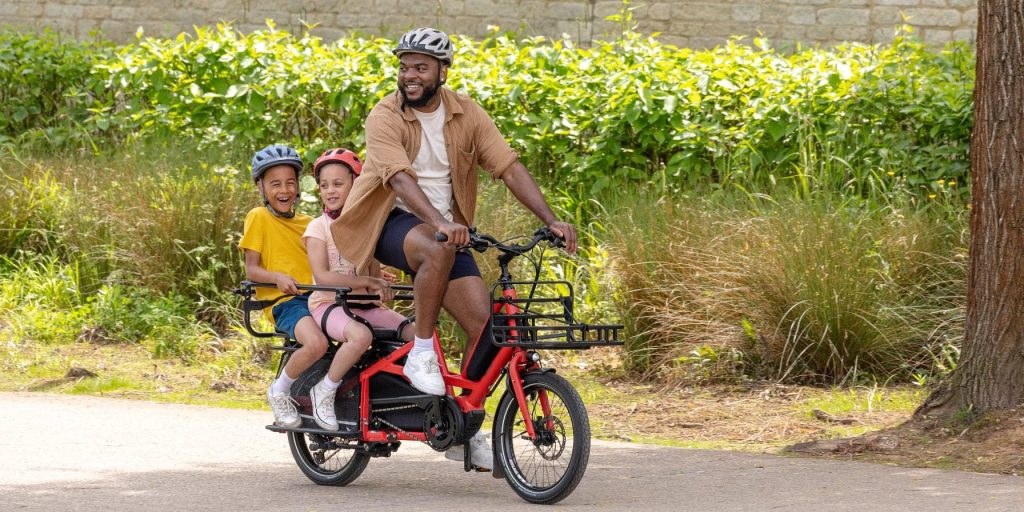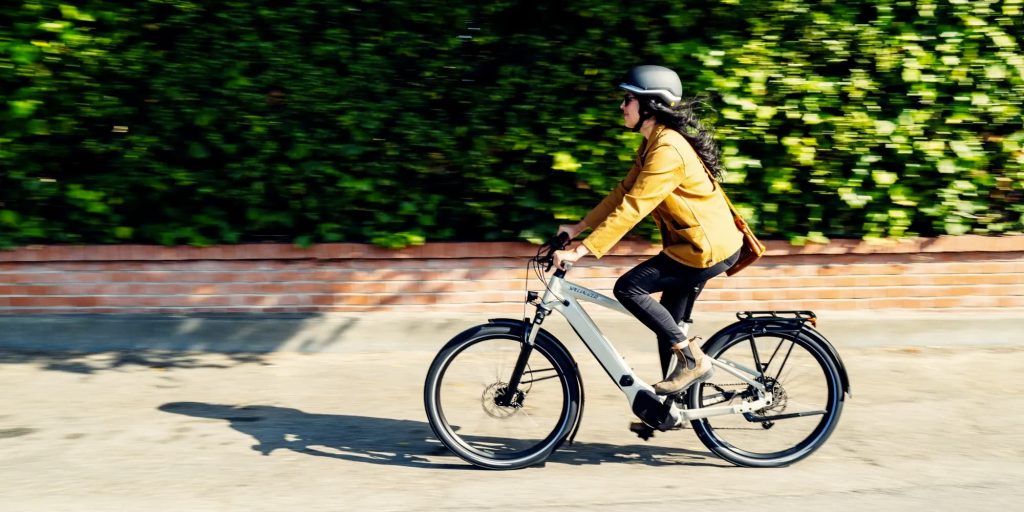
Ever since the federal government gave up on including electric bikes in its broader electric vehicle incentive programs, alternative incentives at the local and state levels have been met largely with success—except, of course, in California. In stark contrast to most other incentive programs around the US, California’s partially developed program has spent years in shambles with no apparent launch date in sight.
Here’s how California screwed the pooch so badly with its own state-sponsored electric bicycle incentive program.
As a quick refresher, California set out over two years ago to launch a statewide e-bike incentive program that would create major discounts to help residents purchase an electric bicycle.
Just as the federal government has long seen that investing in electric vehicle adoption benefits the greater good, policymakers have finally realized that investing in electric bicycle adoption does significantly more good, all the while costing significantly less taxpayer money.
The problem is that while cities and states around the country have managed to devise and launch highly successful incentive programs that can reduce e-bike prices by up to half, California’s own program has seen repeated failures to launch amid a general sense of confusion and allegations of severe mismanagement.

Streetsblog recently delved into those woes, as Melanie Curry reported on the difficulty of getting straight answers from the program managers.
Staff at the California Air Resources Board (CARB) claim that a soft launch of the program has occurred, but it appears to have been limited to just a few dozen people and it’s still unclear where in the state those e-bike vouchers went or how they were selected.
CARB staff have reportedly claimed that 80 applications have been received as part of the soft launch, though no one is sure how they can become one of the lucky guinea pigs testing the program’s voucher system.
And with $30 million in funding earmarked for the program still backed up after over two years, the lack of a clear launch date has patience running thin in The Golden State.

A large part of the problem seems to come from issues with the program’s administrator, a program known as Pedal Ahead. It was selected under raised eyebrows by CARB back in 2022 and tasked with managing the program. However, Curry insinuates that personal connections between a former CARB board member and the founder of Pedal Ahead may have led to its application being granted extra weight despite proposing a significantly different incentive program than that envisioned by the state.
At that time, the incentive program was supposed to have been established by July 2022, but repeated delays meant that Pedal Ahead was only selected as the administrator in August of 2022.
After even more delays, CARB announced an updated launch for January 2023.
But a slew of complicated issues still needed to be solved, ranging from how the vouchers would be distributed to what types of e-bikes would be eligible and whether online retailers would be allowed to participate, just to name a few.
Over a year was spent trying to work out answers to these questions and many more, often complicated by rethinking earlier decisions and creating new project proposals.
Each new launch date came and went without much progress to be seen by the public, and in May of this year, the staff lead Sam Gregor claimed that the new launch would be coming in the next several months, i.e., now. But other than a few dozen vouchers claimed to have been applied under a soft launch test of which no one knows very much information about, the program still appears to be held in a state of arrested development.
According to the San Deigo Union Tribune, the program administrator, Pedal Ahead, is now under investigation by the Department of Justice as well as by CARB, after already being paid around $1 million in administrative costs by CARB.
Pedal Ahead also administers San Diego’s city-wide e-bike voucher program, but the city recently asked the organization to finish out its contract and neglected to renew it, instead taking over administration of the program itself.
CARB has yet to officially comment on the investigation of Pedal Ahead, Curry added. Both CARB and Pedal Ahead “have been far from transparent”, she writes, and it is hard to say which has contributed more to the state incentive program’s failure to launch.

CARB currently expects to be able to give out around 15,000 e-bike incentives from its initial funding allocation, though there are already around 20,000 people on CalBike’s list of interested parties. CalBike is unaffiliated with the incentive program and is unpaid despite becoming the main statewide organization performing outreach for the program to keep California residents informed of the program details, as few as they may be.
As it stands, there is still no clear launch date for the program, and even the confirmed details regarding bike and application eligibility are listed as subject to change before launch.
It is important to remember that many cities and states have developed and launched highly successful electric bicycle incentive programs around the US. The disastrous mishandling of this particular program thus appears to fall somewhere between CARB and Pedal Ahead, and is not reflective of the larger movement of government-sponsored e-bike incentive programs, which have helped countless people adopt more efficient, healthier means of transportation.
